Resources
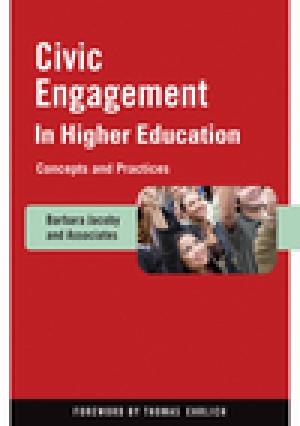
Numerous studies have chronicled students lack of trust in large social institutions, declining interest in politics, and decreasing civic skills. This book is a comprehensive guide to developing high-quality civic engagement experiences for college students. The book defines civic engagement and explains why it is central to a college education. It describes the state of the art of education for civic engagement and provides guidelines for designing programs that encourage desired learning outcomes. In addition, the book guides leaders in organizing their institutions to create a campus-wide culture of civic engagement. (From the Publisher)
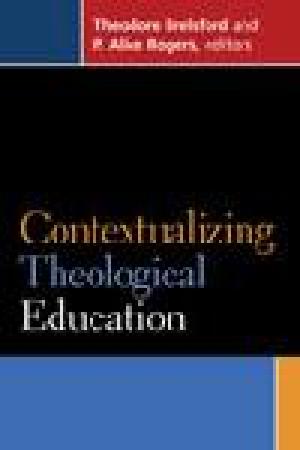
An introductory textbook for theological education. To contextualize theological education is to engage three contexts: academy, church, and society. In this new collection, faculty at Candler School of Theology reflect on particular meanings, insights, challenges, and implications of such an engagement. (From the Publisher)
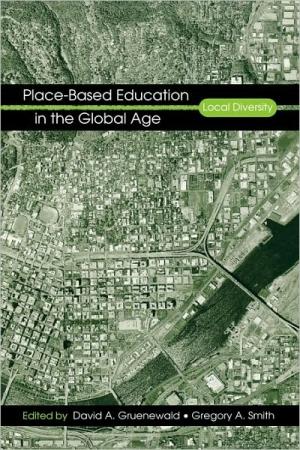
“Polished, clear, insightful, and meaningful.... This volume amounts to nothing less than a complete rethinking of what progressive education can be at its best and how education can be reconceptualized as one of the central practices of a genuinely democratic and sustainable society.... It is the kind of book that has the potential to be transformative.” Stephen Preskill, University of New Mexico “The editors and contributors are pioneers in the field of educational theory, policy, and philosophy.... They are opening new areas of inquiry and educational reform in ways that promise to make this book in very short time into a classic.... The practical applications and experiments included reveal the richness of grassroots initiatives already underway to bring educational theory and policy down to earth. While spanning the richest and deepest intellectual ideas and concepts, the stories told are the types that practitioners and teachers will be able to relate to in their daily undertakings.” Madhu Suri Prakash, The Pennsylvania State University This volume ‚Äî a landmark contribution to the burgeoning theory and practice of place-based education ‚Äî enriches the field in three ways: First, it frames place-based pedagogy not just as an alternative teaching methodology or novel approach to environmental education but as part of a broader social movement known as the “Anew localism”, which aims toward reclaiming the significance of the local in the global age. Second, it links the development of ecological awareness and stewardship to concerns about equity and cultural diversity. Third, it presents examples of place-based education in action. The relationship between the new localism and place-based education is clarified and the process of making connections between learners and their wider communities is demonstrated. The book is organized around three themes: ‚Ä¢ Reclaiming Broader Meanings of Education ‚Ä¢ Models for Place-Based Learning ‚Ä¢ Global Visions of the Local in Higher Education This is a powerfully relevant volume for researchers, teacher educators, and students across the fields of curriculum theory, educational foundations, critical pedagogy, multicultural education, and environmental education. (From the Publisher)
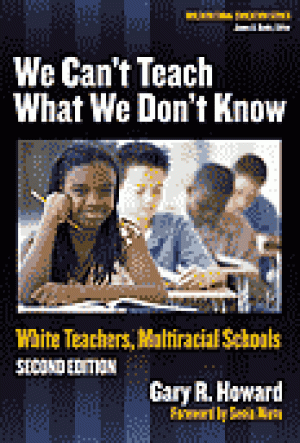
With lively stories and compelling analysis, Gary Howard takes his readers on a journey of personal and professional transformation. From his 25 years of experience as a multicultural educator, he looks deeply into the mirror of his own racial identity to discover what it means to be a culturally competent White teacher in racially diverse schools. Inspired by his extensive travel and collaboration with students and colleagues from many different cultures, We Can't Teach What We Don't Know offers a healing vision for the future of education. (From the Publisher)
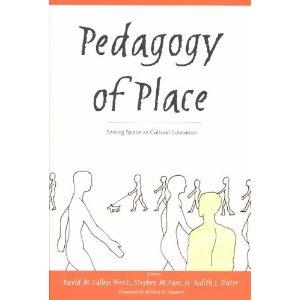
From the Pubisher Pedagogy of Place focuses on the embodiment of purposefully created space resulting from the creation and enactment of its participants' cultural and social conditions. It is also about education, the purposeful creation of spaces that comprise learning environments, and the aesthetic dimensions of the created space called school. The essays present the concept of space - the place where learning happens and where the lives of student and teacher can thrive or wither - a place rich in human potential. In an attempt to address the diversity of what we define as space, Pedagogy of Place addresses issues around place and identity in three distinct strands: as social, as aesthetic, and as political and historical. As a collection, these essays are attempts to open conversations with persons interested in what counts as curriculum, teaching, and learning within the spaces and places that release human potential and nurture the human spirit.
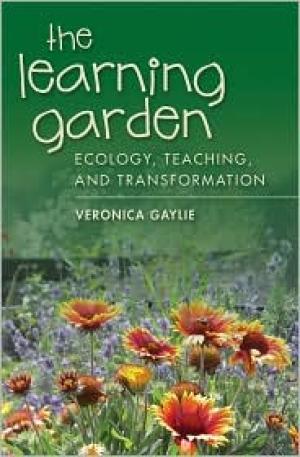
This book tells the story of building a campus “Learning Garden” over a series of cohorts of student teachers and environmental education students. The garden began with high ideals, no funding, and a strong desire to “do something” about the environment. The result was a transformation in attitude toward nature, community and toward the learning process itself. Described through three metaphors (garden as environment, garden as community, garden as transformation) this book provides a bridge of theory and practice for ecology-centred teaching and learning. As new teachers and teacher educators decide how to include “the environment” and principles of “sustainability” into their lessons, this groundbreaking text provides a bridge between theory and practice and guides the reader into the ways that teaching in the natural world changes how people learn, and, how they teach. (From the Publisher)
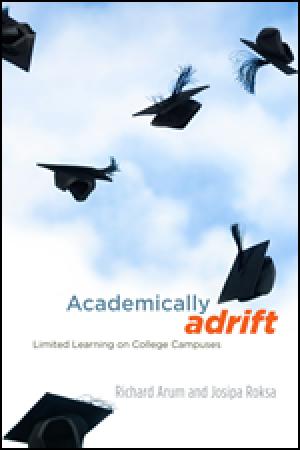
In spite of soaring tuition costs, more and more students go to college every year. A bachelor’s degree is now required for entry into a growing number of professions. And some parents begin planning for the expense of sending their kids to college when they’re born. Almost everyone strives to go, but almost no one asks the fundamental question posed by Academically Adrift: are undergraduates really learning anything once they get there? For a large proportion of students, Richard Arum and Josipa Roksa’s answer to that question is a definitive no. Their extensive research draws on survey responses, transcript data, and, for the first time, the state-of-the-art Collegiate Learning Assessment, a standardized test administered to students in their first semester and then again at the end of their second year. According to their analysis of more than 2,300 undergraduates at twenty-four institutions, 45 percent of these students demonstrate no significant improvement in a range of skills—including critical thinking, complex reasoning, and writing—during their first two years of college. As troubling as their findings are, Arum and Roksa argue that for many faculty and administrators they will come as no surprise—instead, they are the expected result of a student body distracted by socializing or working and an institutional culture that puts undergraduate learning close to the bottom of the priority list. Academically Adrift holds sobering lessons for students, faculty, administrators, policy makers, and parents—all of whom are implicated in promoting or at least ignoring contemporary campus culture. Higher education faces crises on a number of fronts, but Arum and Roksa’s report that colleges are failing at their most basic mission will demand the attention of us all. (From the Publisher)
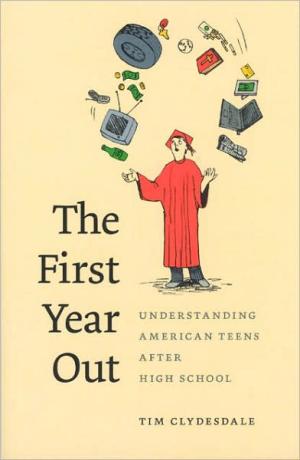
Wild parties, late nights, and lots of sex, drugs, and alcohol. Many assume these are the things that define an American teenager’s first year after high school. But the reality is really quite different. As Tim Clydesdale reports in The First Year Out, teenagers generally manage the increased responsibilities of everyday life immediately after graduation effectively. But, like many good things, this comes at a cost. Tracking the daily lives of fifty young people making the transition to life after high school, Clydesdale reveals how teens settle into manageable patterns of substance use and sexual activity; how they meet the requirements of postsecondary education; and how they cope with new financial expectations. Most of them, we learn, handle the changes well because they make a priority of everyday life. But Clydesdale finds that teens also stow away their identities—religious, racial, political, or otherwise—during this period in exchange for acceptance into mainstream culture. This results in the absence of a long-range purpose for their lives and imposes limits on their desire to understand national politics and global issues, sometimes even affecting the ability to reconstruct their lives when tragedies occur. The First Year Out is an invaluable resource for anyone caught up in the storm and stress of working with these young adults. (From the Publisher)
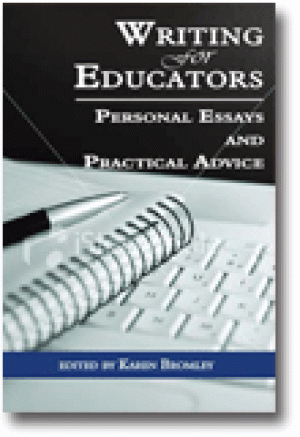
This book is for new faculty, graduate students, teachers, administrators, and other academics who want to write more clearly and have their work published. The essays focus on writing journal articles, dissertations, grants, edited books, and other writing in educational settings. The authors are educators who share their own first-hand experiences that provide novice writers with important knowledge and support in the quest for success in professional scholarly writing. A variety of authors discuss the writer's craft, including issues of voice, audience, planning,drafting, revision, conventions, style, submitting to journals, editorial review, and editing. (From the Publisher)
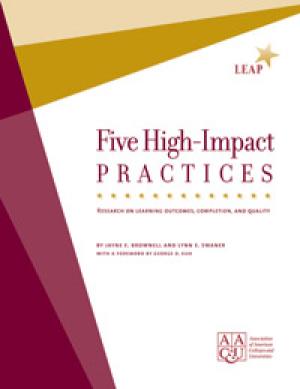
This monograph examines what educational research reveals about five educational practices: first-year seminars, learning communities, service learning, undergraduate research, and capstone experiences. The authors explore questions such as: What is the impact on students who participate in these practices? Is the impact the same for both traditional students and those who come from historically underserved student populations? The monograph includes a foreword by George D. Kuh, High-Impact Practices: Retrospective and Prospective, and recommendations for how to improve the quality of high-impact practices. (From the Publisher)